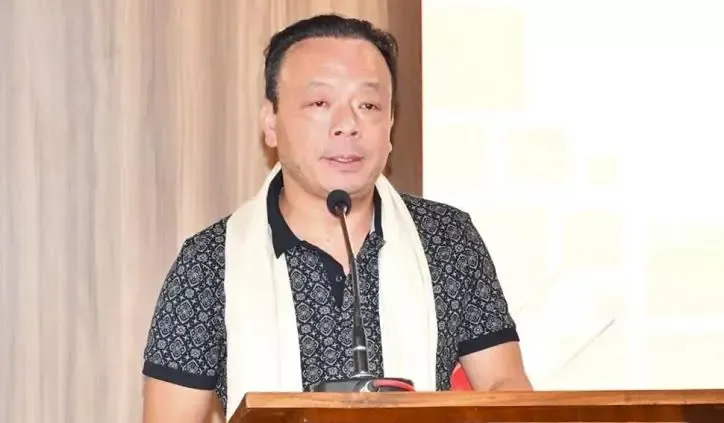What Steps is Meghalaya Minister Taking to Resolve Tourist Taxi Dispute?

Synopsis
Key Takeaways
- Protests by AKMTA against out-of-state taxis could harm local tourism.
- Dialogue is essential to prevent retaliatory measures from Assam.
- The government is focused on protecting local interests
- Mutual discussions between associations are encouraged.
- Efforts are in place to foster communication between both parties.
Shillong, Sep 7 (NationPress) Meghalaya's Tourism Minister Paul Lyngdoh has raised alarms regarding the recent protest organized by the All Khasi Meghalaya Tourist Taxi Association (AKMTA). This protest, targeting the entry of tourist taxis from outside the state into popular destinations, may provoke retaliatory actions from neighboring Assam.
In a statement to reporters on Sunday, Lyngdoh emphasized the need for thoughtful deliberation, advocating for dialogue instead of confrontation.
He noted, “We have observed reactions from Assam associations, which have declared that if their vehicles are barred from entering tourist locations in Meghalaya, they will reciprocate.”
The Minister highlighted that such reciprocal restrictions could adversely affect tourism in both states, particularly since Assam and Meghalaya share significant economic and cultural ties.
Lyngdoh encouraged AKMTA to pursue a resolution through discussions with the committee led by senior government official Cyril Diengdoh, tasked with addressing transport-related issues.
“We have proposed that they engage with the committee. While they have been meeting periodically, I am puzzled as to why a resolution remains elusive,” Lyngdoh stated, emphasizing that tourism is a vital economic asset for Meghalaya, and disruptions in inter-state transport could jeopardize livelihoods.
The Minister reiterated that disputes between drivers from both states should be resolved through direct dialogue between their associations, rather than through unilateral protests.
“In an ideal scenario, any disputes between drivers from Meghalaya and Assam should be settled through discussions between their respective associations. If they choose to protest, we understand that it might provoke retaliatory actions from Assam,” he cautioned.
Lyngdoh reaffirmed the government’s dedication to safeguarding local drivers' interests while ensuring that Meghalaya remains an appealing and accessible destination for tourists regionally and beyond.
He urged all stakeholders to prioritize dialogue to prevent a situation that could adversely impact the state’s tourism sector during the peak travel season.
This standoff arises amid escalating competition among tourist taxi associations in the Northeast, with inter-state mobility being crucial for sustaining visitor numbers. Officials indicated that efforts are underway to facilitate discussions between both sides to prevent any confrontation.










